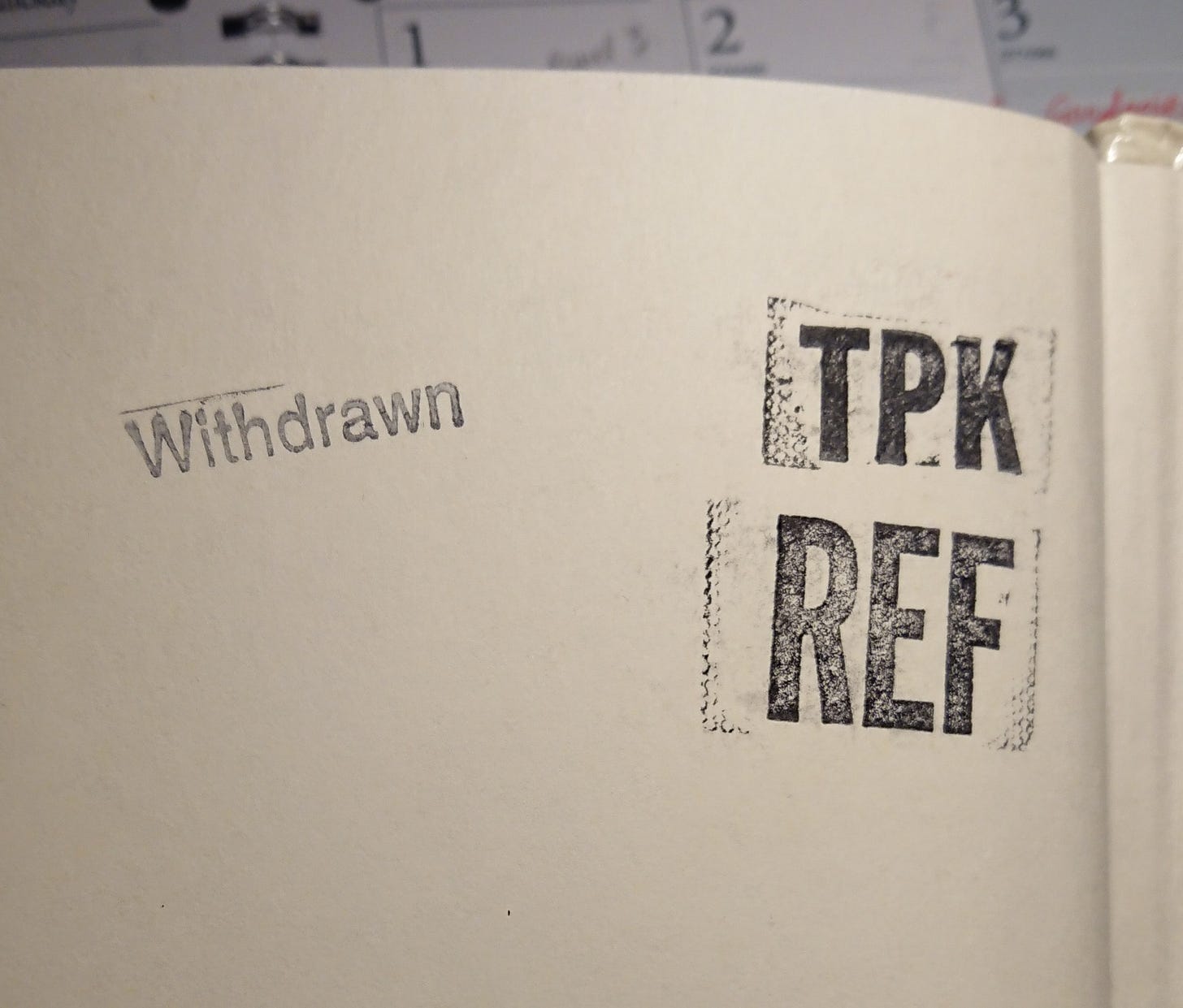A Reference Book Like a Doorstop
The New Princeton Encyclopedia of Poetry and Poetics is an old friend come to remind you of the meaning of 'volta'
Some professors may rebuke tertiary sources for not being scholarly enough, but Aaron Shurin directly assigned students in the MFA prosody course at USF the New Princeton Encyclopedia of Poetry and Poetics as a textbook. It is for this reason, and two others, that this book is my favorite print reference source.

1) This book reminds me of the heyday of grad school, doing an MFA on the university’s dime for the one thing I loved most in the world since I was 13. Tuesday and Wednesday nights spent workshopping poems, talking about poetry, hope in the midst of the daily 8-4, high on the anesthesia of lyric expressionism, and feeling cocky for it. How many times did I actually crack open this tome to enlighten myself on the different aspects of the formal sonnet is up for debate. The heft it brought to my bag, preventing me from carrying much else, resonates still today.

2) This same hefty silhouette made it easy to spot on the shelf in the reference room at USF: there it stands grandly in my mind’s eye: two rows from the back side of the last bank of computers, left side close to the South facing windows, bottom shelf. Those beautiful black coated metal shelves that were so satisfying to dust.

3) My own copy is a discarded library copy, echoing the fate of so many old reference books. It was withdrawn from the Public Library District of Columbia and it has sat on my own shelf for the past 11 years. Today I had occasion to take it out to look up volta as I continue work on a grueling chapbook of sonnets begun 8 years ago.
VOLTA, volte (It. “turn”). A musical and prosodic term for a turn, particularly the transition point between the octave and sestet (q.v.) of the sonnet (q.v.), which in its It. form usually rhymes abbaabba cdecde. The v. is significant because both the particular rhymes unifying the two quatrains of the octave and also the envelope (q.v.) scheme are abandoned simultaneously, regardless of whether this break is further reinforced syntactically by a full stop at the end of the octave (though usually it is), creating a decisive “turn in thought.” By extension the term is applied to the gap or break at line 9 of any sonnet type, though in the Shakespearean form, for example, the type of rhyming (cross rhyme) is not abandoned at that point. From the point of view of print culture, the turn is effected in white space, i.e. in the gap between stanzas. One can hardly imagine any stronger v. than that between the octave and sestet of Donne’s Holy Sonnet VII, which marks a momentous shift from the imagined scene of Judgement Day, cosmic in scale, to the quiet immediacy of the here and now, the narrator deep in thought.
I must have looked this up before, but not in the New Princeton. The sonnet I had returned to work on tonight already had a distinct turn between lines 8 and 9, white space and all, although I had dispensed with formal rhyming schemes long ago. In glee I congratulated myself at going as far as changing the subject the speaker is addressing at this point, switching to the familiar “you” rather than the third person. Are these the liberties the 21st century emboldens poets to take, forsaking a turn signalled by a switch in rhyming scheme with a directive, ending with four rhymes on “me”: praise me/Coney [Island]/metonymy/Tommy. Lazy yet heart wrenching? The poem is finished at any rate.
The Past
Louise Glück - 1943-
Small light in the sky appearing
suddenly between
two pine boughs, their fine needlesnow etched onto the radiant surface
and above this
high, feathery heaven—Smell the air. That is the smell of the white pine,
most intense when the wind blows through it
and the sound it makes equally strange,
like the sound of the wind in a movie—Shadows moving. The ropes
making the sound they make. What you hear now
will be the sound of the nightingale, Chordata,
the male bird courting the female—The ropes shift. The hammock
sways in the wind, tied
firmly between two pine trees.Smell the air. That is the smell of the white pine.
It is my mother’s voice you hear
or is it only the sound the trees make
when the air passes through thembecause what sound would it make,
passing through nothing?
(courtesy of Poets.org)
I wish to pause to salute Louise Glück, who won the Nobel Prize in Literature today. As she said in her New York Times interview, “The hope is that if you live through it, there will be art on the other side.” Poetry is coming for me on the other side, even if I wake up groggy from craving a deep dive into the past never sated by any amount of primary source research in my own archives.
Do you have a favorite reference book, or a favorite Louise Glück poem? Share it in the comments!


